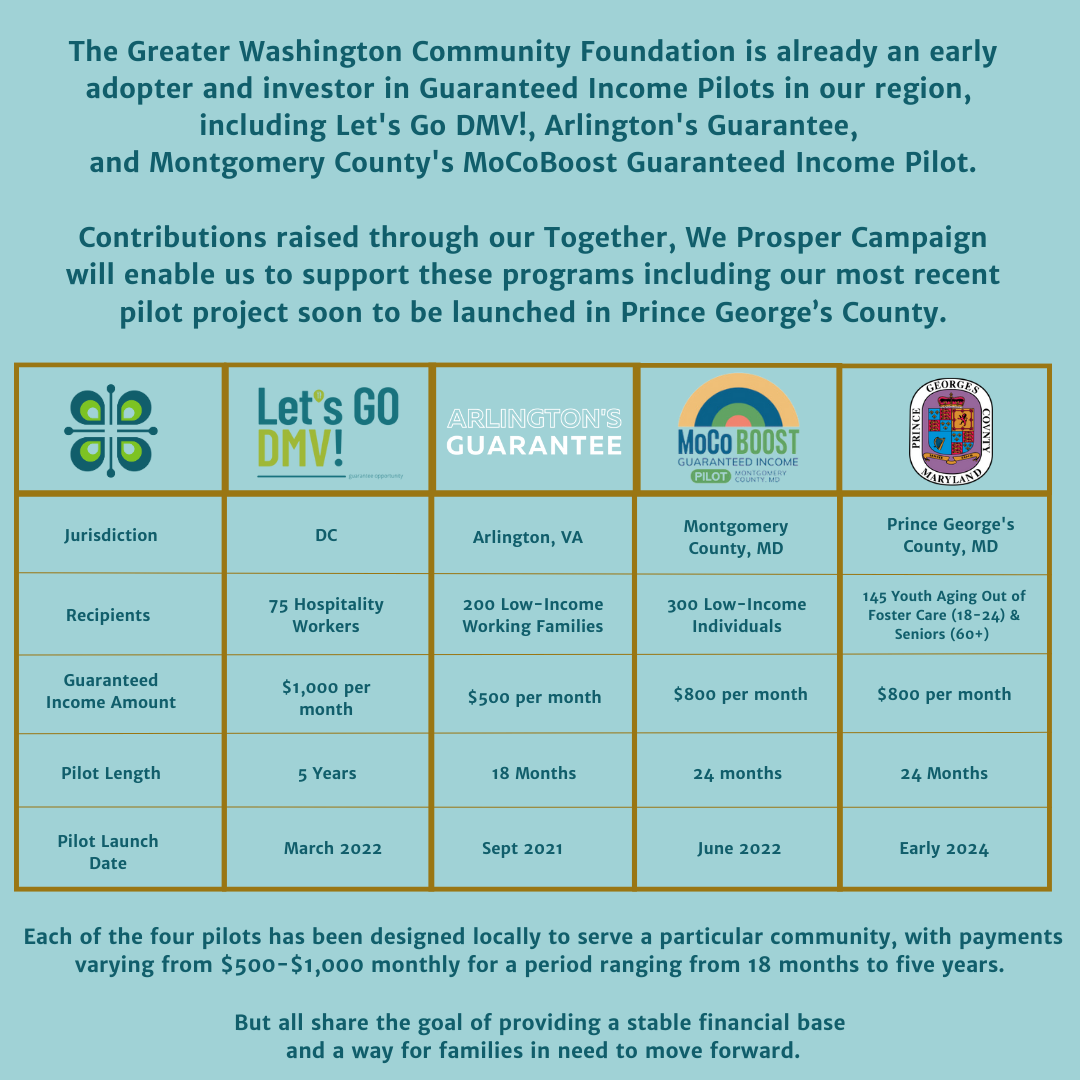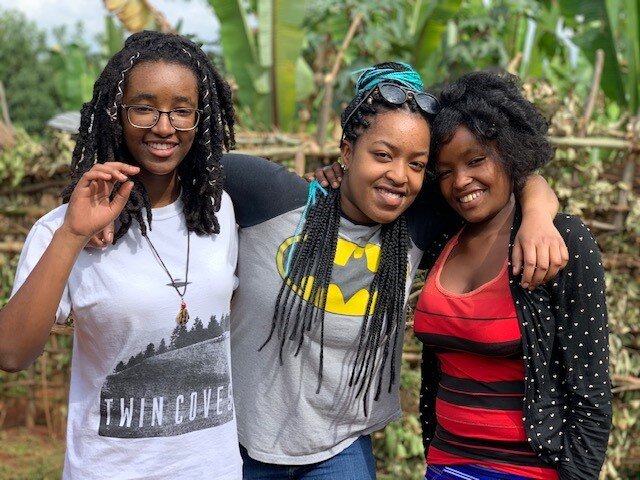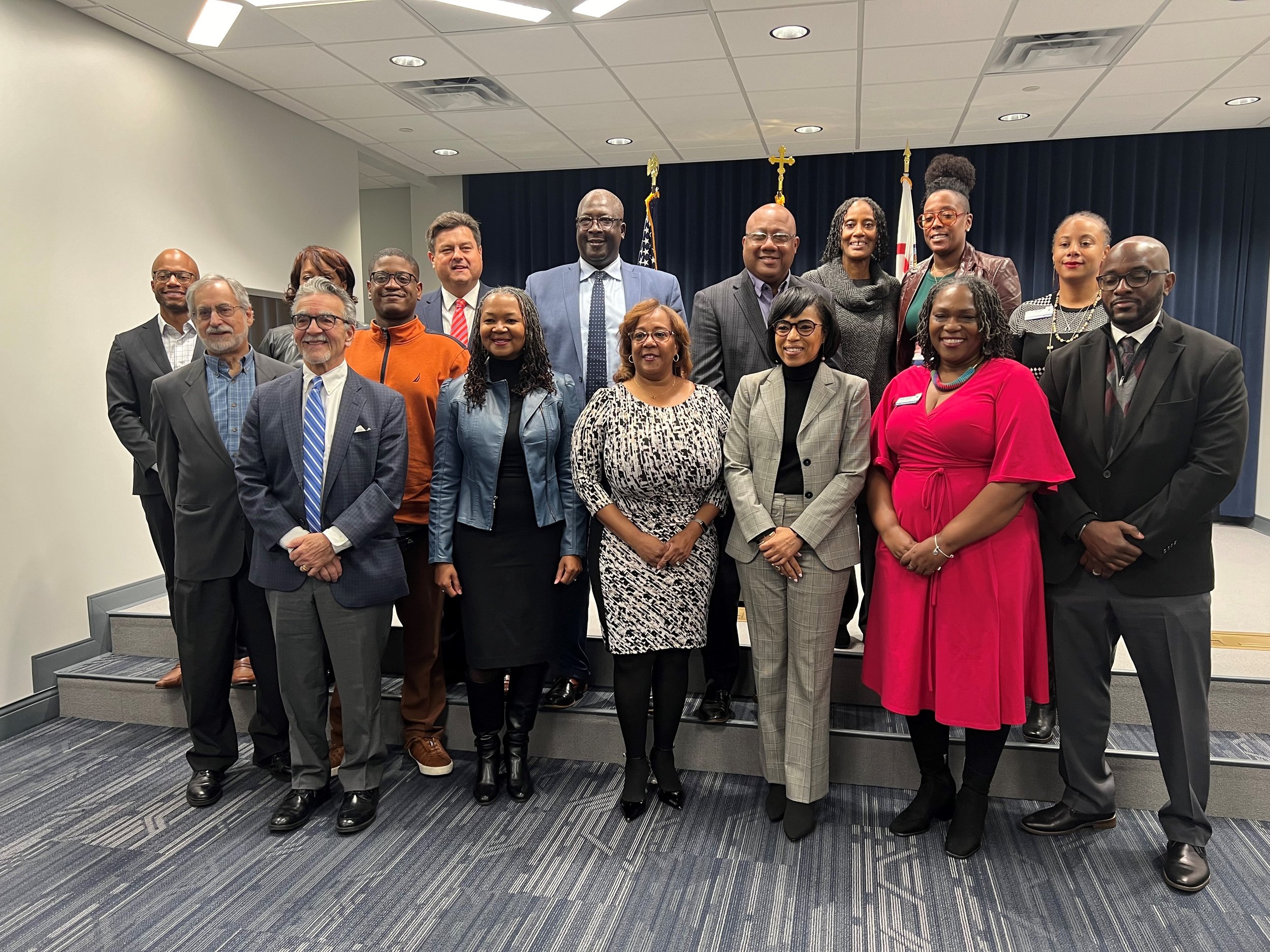Much has been written about “entrenched” or “generational” poverty, a cycle of economic distress that can seem unescapable. How can a person who is treading water financially, barely managing to cover the most minimal expenses of survival, ever get ahead? As so many people in our region are intractably trapped in these circumstances, prospects for economic mobility—a key determinant for overall wellbeing and building wealth—remain distant and unreachable.
In the face of this reality, cities and counties all around the country have moved urgently to pilot an approach called Guaranteed Income— a monthly cash payment given directly to individuals for a limited period of time, with no strings attached and no requirements that are tied to work. Guaranteed income does not replace existing supplemental or government benefits, but provides an extra boost that can lift people out of the safety net and into a more stable life. Guaranteed income can enable a person to pay down debt, move into permanent housing, further their education, secure a better job, or stop working a second job and instead be home for family dinner and homework time. For more, read the Recap of our ‘In Pursuit of Economic Justice’ Conversation with National Leaders in the Guaranteed Income Movement.
the big payback
The positive impact of guaranteed income has been studied for decades, with evidence indicating that cash transfers are an effective anti-poverty measure with an array of benefits to social well-being.
The most well-known pilot in the United States launched in 2019 in Stockton, California. The pilot known as the Stockton Economic Empowerment Demonstration (SEED) provided unconditional cash payments to 125 people over a two-year period. SEED is also among the most rigorously evaluated pilots in the nation—confirming that when people have cash, their lives improve in significant ways. For example:
Those who received guaranteed income experienced less income volatility than those in a control group who did not receive the cash payment—permitting the beneficiaries to stabilize and plan for the future.
Once basic needs like food and utilities were covered, recipients of guaranteed income demonstrated increased emotional and financial capacity related to goal setting and risk taking, thereby shifting their prospects for employment.
As a result, the income served to boost employment. Over the first year of the pilot, full-time employment among recipients increased by 12%, while those in the control group saw only a 5% increase in full-time work.
The income enabled recipients to pay down debt, key to positioning them for financial stability. Over a one-year period, the number of recipients making regular payments on their debts rose from 52% to 62%. In contrast, those in the control group paying down debt sank from 48% to 44%.
Pilot participants who received the regular payments reported decreases in anxiety, depression, and extreme financial strain, a greater ability to cope with unexpected income shocks, and more optimism about their future.






Our Plan for Guaranteed Income Pilots in Greater Washington
The Greater Washington Community Foundation is already an early adopter and investor in guaranteed income pilots in our region, including Let’s Go DMV! and Arlington’s Guarantee. Contributions raised through our Together, We Prosper Campaign will enable us to continue our investment in these pilots and to support two additional programs: Montgomery County’s Guaranteed Basic Income Pilot, announced in December of 2021, and Thrive Prince George’s, announced in November 2023.
Each of the four pilots has been designed locally to serve a particular community, with payments varying from $500 to $1,000 monthly for a period ranging from 18 months to five years. Each program is designed to put unconditional cash directly in the hands of individuals and families that need it most, allowing them to make choices about how to improve their economic position and what they need to prosper.
For example, Thrive Prince George’s, the result of a public-private partnership between the Greater Washington Community Foundation, Prince George’s County Government, and the Meyer Foundation, is a $4 million guaranteed income pilot that provides participants with payments of $800 per month for 24 months. Recognizing the needs of some of the most vulnerable populations in Prince George’s County, this program is supporting 50 youth (age 18-24) who have aged out of the foster care system and 125+ seniors (age 60+) who are also caregivers within Prince George’s County.
Pilots are funded through public-private partnerships between local government, private donors and philanthropic organizations like The Community Foundation. The Community Foundation’s Guaranteed Income investments are funded through a designated fund within the Fund for Greater Washington.
We are confident that these pilot programs will demonstrate that guaranteed income stimulates economic mobility and help close the racial wealth gap. As we provide financial support for these guaranteed income programs, we will also be building consensus and political will to make guaranteed income a publicly funded instrument of community prosperity.
Read More
Both scholarly articles and popular media offer detailed information on the success of children’s trust accounts in communities across the country. Some selections:
Guaranteed Income As a Path Towards Gender and Racial Justice, Ms. Magazine
Stockton Economic Empowerment Demonstration (SEED) - Key Findings
Direct Cash Transfer as a Vehicle for Speed, Inclusivity, and Equity, The Urban Institute
In Pursuit of Economic Justice Recap: National Leaders Discuss Guaranteed Income Movement













